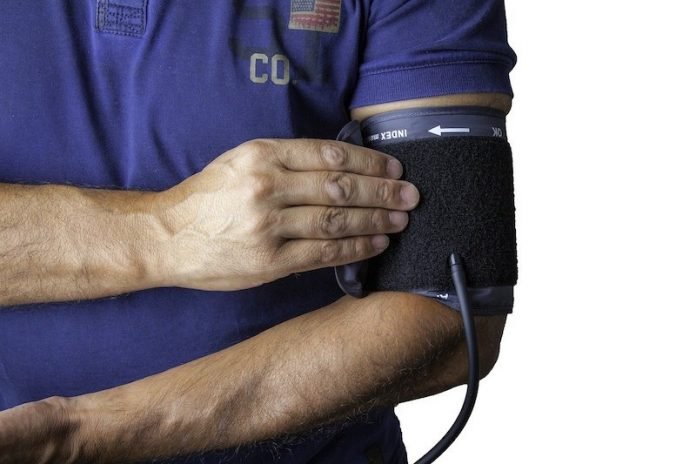
In a new study from the University of Exeter, researchers confirmed that a difference in blood pressure readings between arms is linked to a greater risk of heart attack, stroke and death.
They found that the greater the inter-arm blood pressure difference, the greater the patient’s additional health risk.
The findings provide a new upper limit of ‘normal’ for an inter-arm difference in blood pressure, which is significantly lower than the current guidance.
Blood pressure rises and falls in a cycle with each pulse. It is measured in units of millimeters of mercury (mmHg), and the reading is always given as two numbers: the upper (systolic) reading represents the maximum blood pressure and the lower (diastolic) value is the minimum blood pressure.
High systolic blood pressure indicates hypertension. This affects one-third of the adult population and is the single leading cause globally of preventable heart attacks, strokes and deaths.
Currently, international blood pressure guidelines advise health professionals to measure blood pressure in both arms when assessing cardiovascular risk,- yet this is widely ignored.
In the study, the team conducted a meta-analysis of all the available research, then merged data from 24 global studies to create a database of nearly 54,000 people.
They analyzed data on the inter-arm blood pressure difference and tracked the number of deaths, heart attacks and strokes that occurred in the cohort over 10 years.
They found that each mmHg difference found between the two arms elevated the predicted 10-year risk of one of the following occurring by 1%; new angina, a heart attack or stroke.
A big difference between the systolic blood pressure measurements in the two arms could be indicative of a narrowing, or a stiffening, of the arteries, which can affect blood flow.
The team says these arterial changes are recognized as a further risk marker for subsequent heart attack, stroke or early death, and should be investigated for treatment.
If you care about high blood pressure, please read studies about adding these two minerals to drinking water could help treat high blood pressure and findings of these high blood pressure drugs may protect against Parkinson’s, dementia, Huntington’s.
For more information about high blood pressure prevention and treatment, please see recent studies about popular high blood pressure drug may increase risk of bowel disease and results showing that this popular tea may cause high blood pressure.
The study is published in Hypertension. One author of the study is Dr. Chris Clark.
Copyright © 2021 Knowridge Science Report. All rights reserved.



